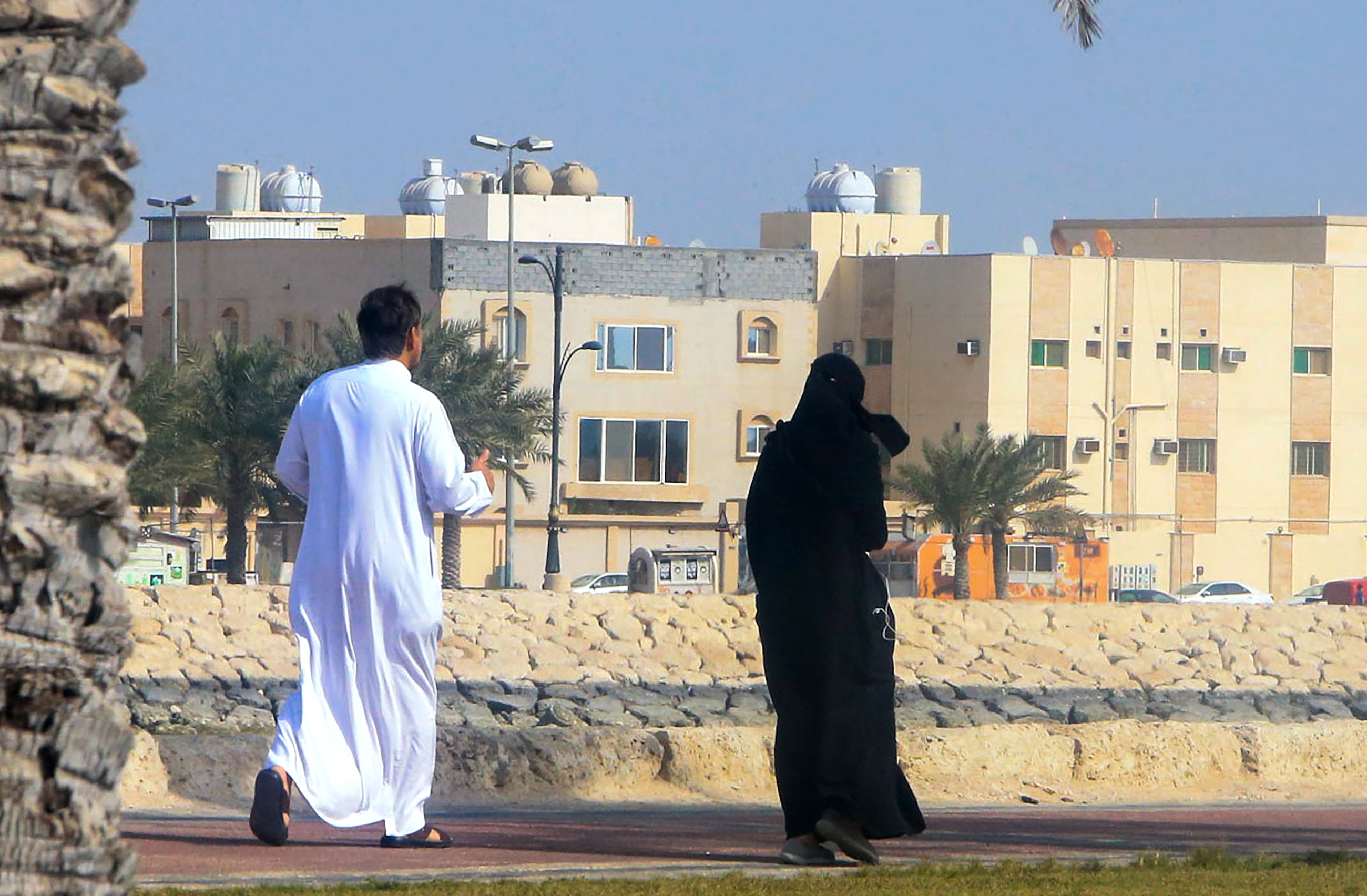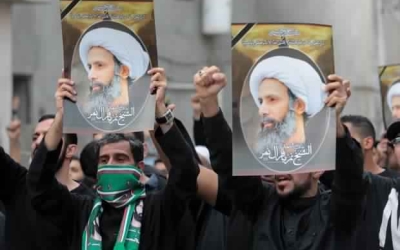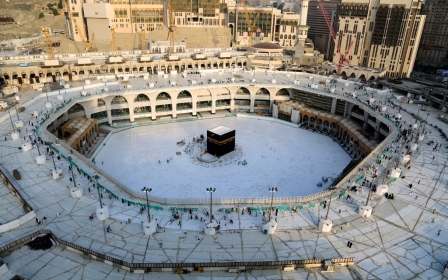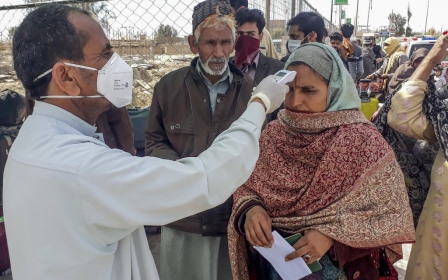Coronavirus: Saudi Arabia's Qatif residents adapt to lockdown

Saudi Arabia's Qatif region has often been described as "restive" after being the site of repeated demonstrations against the government as well as clashes between armed groups and the police.
But since the eastern province became the epicentre of the kingdom's coronavirus outbreak, it has been on lockdown with little or no movement being allowed in and out.
A resident of Qatif, who did not want to be named, told Middle East Eye that supplies were still being allowed into the area, but said even medics have now been restricted.
'People are worried more about being infected than being restricted'
- Qatif resident
"At the moment, security and checkpoints are very tight to make sure nobody goes out of the restricted area. People can move freely within a limited area but not beyond the security and checkpoints," he said via the Telegram messaging app.
"Medical staff were able to move, but then they were stopped by their line managers to prevent spreading the virus in case they have been in contact with someone who is infected."
New MEE newsletter: Jerusalem Dispatch
Sign up to get the latest insights and analysis on Israel-Palestine, alongside Turkey Unpacked and other MEE newsletters
He said that the roads were blocked off by checkpoints manned by around three to five police cars and six to ten policemen.
"I have been told by someone that this measure may take up to 14 days only," he added.
"But if more cases keep coming to light, then the restrictions may stay longer."
Locals have been using their phones to watch religious sermons, while shops have sold out of masks and hand sanitiser, like much of the rest of the world.
Work at government and private entities was suspended with the exception of essential activities, such as medical and security services and petrol stations.
Despite the transformation of their daily lives, the resident said that most people he knew accepted the stringent measures as necessary.
"People are worried more about being infected than being restricted," he explained.
Memories of siege
Saudi authorities initiated the closing-off of the oil-rich region on Sunday after at least 11 cases of the coronavirus were confirmed there.
The main cause of infection is thought to stem from people returning from Iran. Qatif is the centre of the kingdom's Shia population, who often travel to Iran to visit holy shrines.
The kingdom has now banned all travel to Iran, which has been one of the worst affected countries along with Italy and China. At least 429 people have died and 10,075 have been infected in the country.
'I was in Awamiyah during the siege and this time is nothing compared to what happened in the past'
- Qatif resident
Saudi authorities have branded Iran irresponsible after it allowed entry to Saudi citizens in the midst of the coronavirus outbreak, as well as for not stamping their passports.
Last week, Riyadh said it would be granting a 48-hour amnesty for people who had travelled to Iran as long as they came forward, so the spread of the virus could be checked.
The Qatif resident said he understood that some people have been stranded in Iran since the travel restrictions were implemented.
"They have been in touch with the government to make sure that they have safety of passage and to get official assurances that they will be pardoned if they declare that have been there [in Iran].
"That's part of isolation measures for people who may be infected," he explained.
Qatif's relationship with the rest of the kingdom has been strained in the past. Historically, Saudi Arabia's adherence to an ultra-conservative form of Sunni Islam has seen the kingdom's Shia minority face discrimination and marginalisation.
The execution of a popular Shia cleric, Sheikh Nimr al-Nimr, in 2016, who had been convicted on charges of terrorism after leading street demonstrations in Qatif demanding reform in the kingdom, sparked off widespread anger.
In 2017, attempts to demolish and, in the government's words, renovate the historical city centre of the town of Awamiyah saw groups take up arms and begin street battles against security forces. This led to the area being placed under "siege" as demolition work took place and security forces attempted to flush out the insurgents.
Dozens were killed and vital supplies were choked off in the province, while 30,000 people fled.
The Qatif resident said that compared to the events of 2017, the government appeared keen to try and communicate with locals and prevent any escalation.
"I was in Awamiyah during the siege and this time it is nothing compared to what happened in the past. The area that is being quarantined is way bigger than what was besieged before," he said.
"This time the government has taken this measure with more information messages being sent out to keep people aware of what's happening."
Some activists outside the kingdom have suggested a sectarian element to the way the kingdom has focused on Qatif.
Ali Adubisi, director of the European Saudi Organisation for Human Rights, said that the government was exploiting the situation for their own agenda.
"The Saudi government has tried to exploit coronavirus to target the Shia people, as they would with any other event," he told MEE via phone from Berlin.
He said that it was hypocritical for the kingdom to try and present a caring image for Qatif considering the past violence.
"They target people in the beginning and then try and be kind again, saying 'we target you because we care about you,'" he said.
However, the Qatif resident said he had not seen any evidence that the government was exploiting the situation to target activists or critics.
"I think the government is in a position where panic is the main concern," he explained.
"Believe me, if the government wanted to arrest activists, then harsher and tougher measures would have been applied."
Middle East Eye delivers independent and unrivalled coverage and analysis of the Middle East, North Africa and beyond. To learn more about republishing this content and the associated fees, please fill out this form. More about MEE can be found here.





